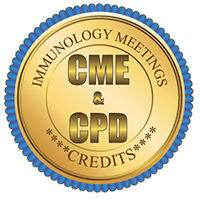Zarina Arif
Aligarh Muslim University, U.P, India
Title: Projected role of modified-albumin in cancer
Biography
Biography: Zarina Arif
Abstract
Statement of purpose: Extensive research till date suggests that oxidative stress, chronic inflammation, and cancer are closely linked. Inflammation results in the production of numerous reactive oxygen, nitrogen and chlorine species, in addition to the products of lipid and sugar oxidation, some of these products are capable of chemically modifying amino acids in proteins. This in turn results in changes to the structure and function of proteins. Increasing evidence demonstrates that such post-translational modifications result in the generation of neo-epitopes capable of eliciting both innate and adaptive immune responses. Therefore, this study has analyzed the changes in human serum albumin upon modification with peroxynitrite, an endogenously produced powerful oxidizing and nitrating agent, and is implication in the etiopathogenesis of cancer.
Methodology & Theoretical Orientation: Various physico-chemical studies were carried out to establish the modification of albumin. Peroxynitrite-modified-albumin exhibited hyperchromicity at 278 nm, changed microenvironment of tyrosine, tryptophan along with the generation of 3-nitrotyrosine, nitrotryptophan and protein carbonyls. Moreover, we have observed immune cells may generate autoantibodies. Thus, peroxynitrite-modified-albumin was used as antigen for detecting autoantibodies in lung cancer patients by ELISA. IgG isolated from the sera of patients with lung cancer showed better recognition for neo-epitopes on the modified albumin, reflecting theresence of circulating autoantibodies in lung cancer patients.
Conclusion and Significance: Gross structural changes in albumin may favour autoantibodies induction in vivo under similar conditions. Peroxynitrite- modified –albumin may also be considered as potential antigenic candidates for eliciting autoimmune response in lung cancer patients.

